Venus dream
in a scallop from a grain of sand,
a million pearls came to be
and one diamond
on a seashell, she surfs on the foam
of the wild sea,
in between floating swans,
waves, and mother of pearls
shining under her feet
rose petals and angels above her head,
gardenias perfuming her hair,
pomegranate on her lips,
myrtle bracelets and twilight skies
on dove wings, eternal love flies
and nests in her womb
on a bed of desire, she lays,
adorned in gold and grape vines,
a goddess born of sea and sky
love resting
on passion clouds
The birth of Aphrodite
Τhere are multiple versions, of how Aphrodite came to be. According to Hesiod, Aphrodite was born from sea foam, hence her name, meaning "foam-born". After the Titan Cronus castrated his father, Uranus (the Sky), he threw his severed genitals into the sea, and from the white foam that formed around them, Aphrodite emerged. She floated to the island of Cyprus on a seashell, where she was greeted by the Horae (goddesses of the seasons), who dressed her in divine garments. Although less poetic, in the version of Homer’s Iliad, Aphrodite is described as the daughter of Zeus and Dione, making her part of the Olympian family by direct descent.
The Archetype
Aphrodite (Αφροδίτη)—and her Roman counterpart Venus— represents the archetype of love, beauty, sensuality, and creative power. She is not just the goddess of romantic love but also passion, fertility, and the life-giving force of attraction. She embodies the irresistible pull of desire, the transformative nature of union and devotion, and the ability to inspire both ecstasy and destruction. Unlike other goddesses who are governed by duty or wisdom, Aphrodite operates on instinct and emotion, prioritizing pleasure, connection, affection, and self-expression. She is the power of allure, not just physical beauty but the magnetic force of confidence and charm. Yet, her archetype also carries chaos; seduction, in its most intense form, is reckless, all-consuming, and even destructive. This shadow side is dripping in jealousy, manipulation, vanity, deception, revenge, abandonment, punishment, and wounded pride.
Aphrodite & Love
Aphrodite’s relationship with love is complex, divine, and sometimes even dangerous. She grants love freely but also manipulates it, making it so that no one, mortal or god, is immune to its effects. In the myths, her love affairs reveal different shades of love: with Hephaestus, it is unwanted and forced; with Ares, it is passionate and forbidden; with Adonis, it is tender yet tragic, and so on. Love, in Aphrodite’s realm, is never static, it is alive, unpredictable, and ever-changing. At its core, her kind love is all about feeling fully alive, surrendering to what is, and embracing both the pleasure and the pain that comes with it.
Aphrodite & Beauty
Her beauty is more than just physical perfection, it is full of radiance, confidence, and the ability to captivate just about anyone. She represents the idea that true beauty is not just in appearance but in movement and presence. When she enters a room, the air shifts, and flowers bloom. This way, Aphrodite’s beauty is also power. She does not simply exist to be admired, she wields beauty as a force of influence, teaching us that beauty is not passive; it is alive, a tool and a weapon.
Practices for beauty:
🌀crying
🌀saying “thank you”
🌀figs for breakfast
🌀being well-read
🌀rose petal infused sweet almond herbal body oil
🌀 yin yoga in The Daily Rest Studio by
🌀pottery classes
🌀wearing pearls
🌀calendula tea
🌀museum visits
🌀dancing
Enjoy some (okay, a lot) art:



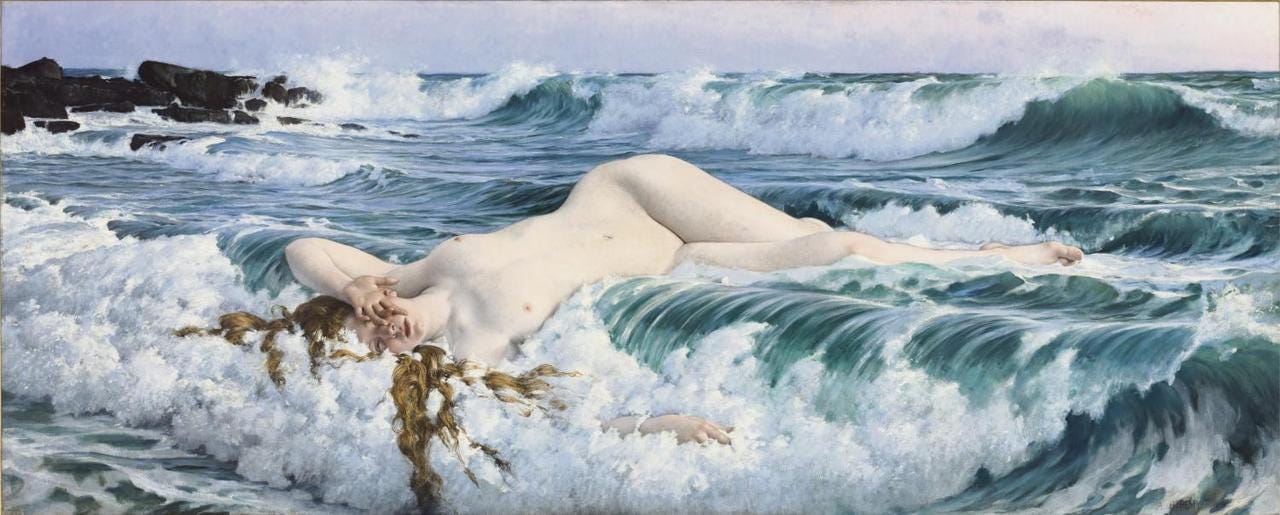
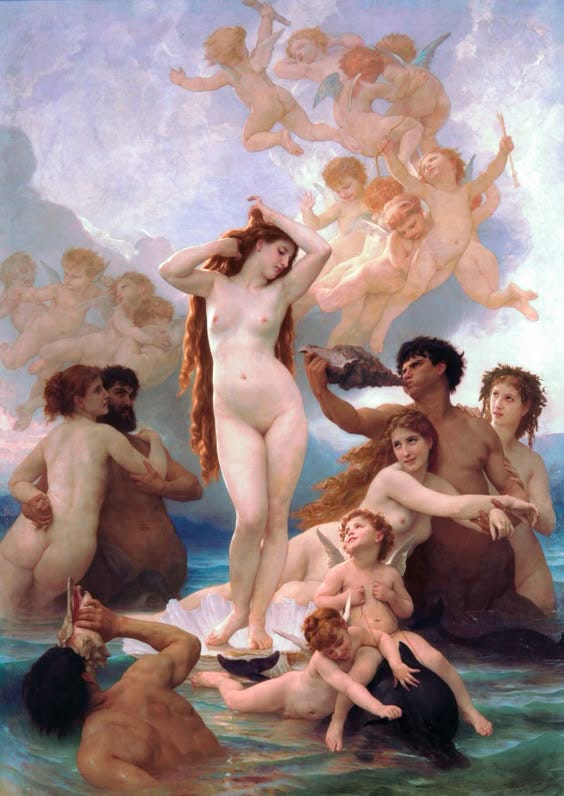
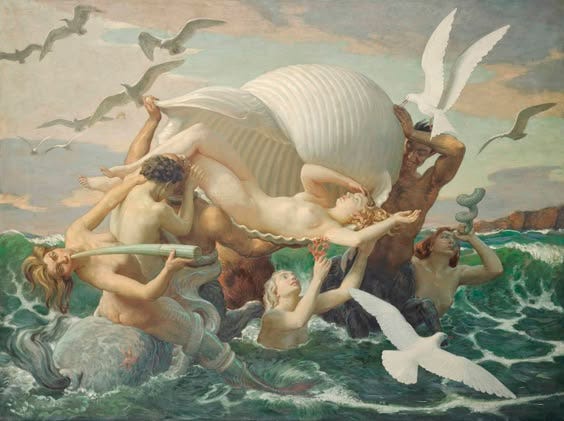
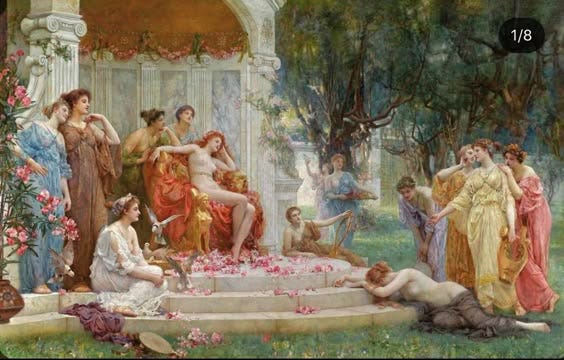
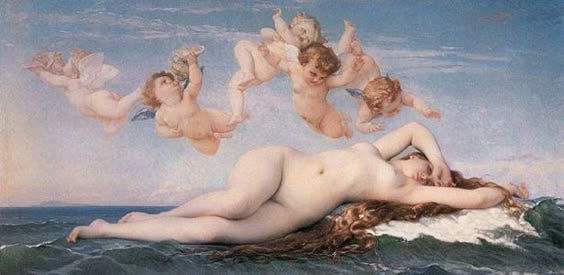
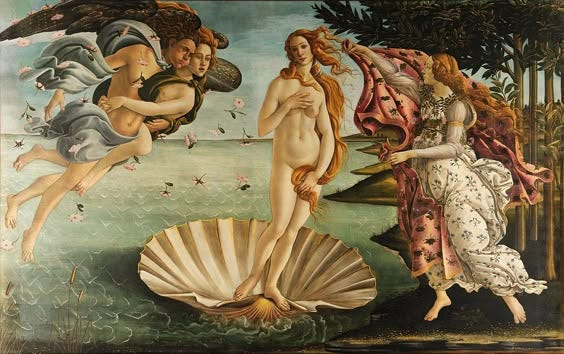
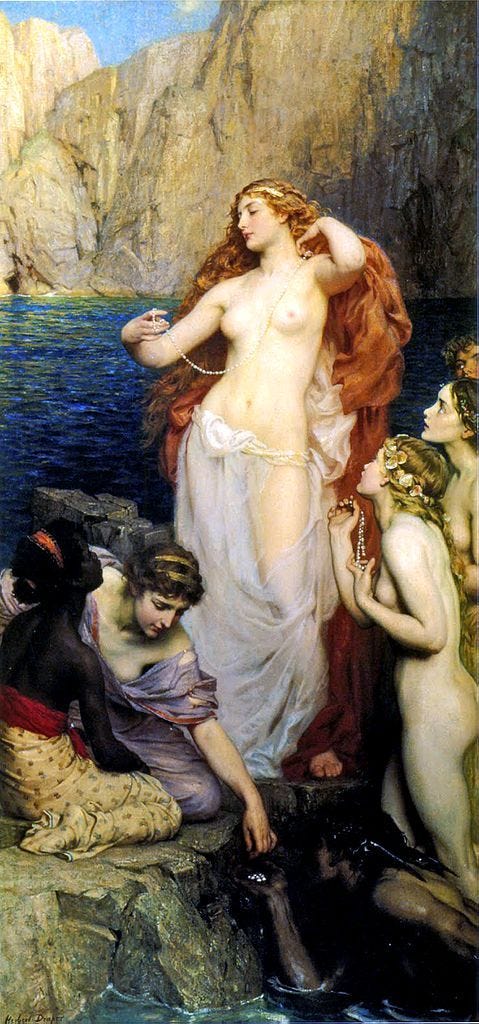
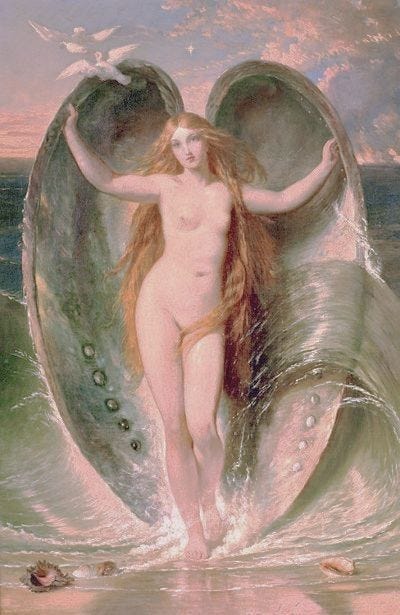

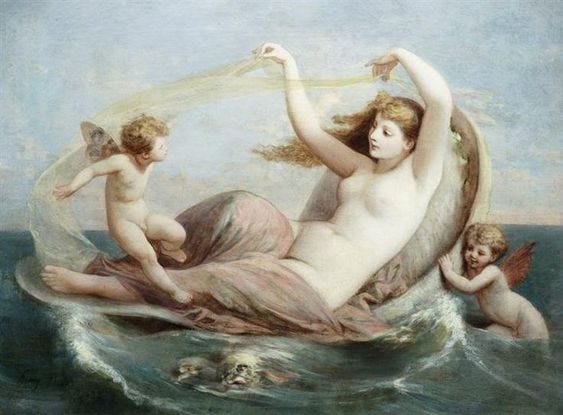
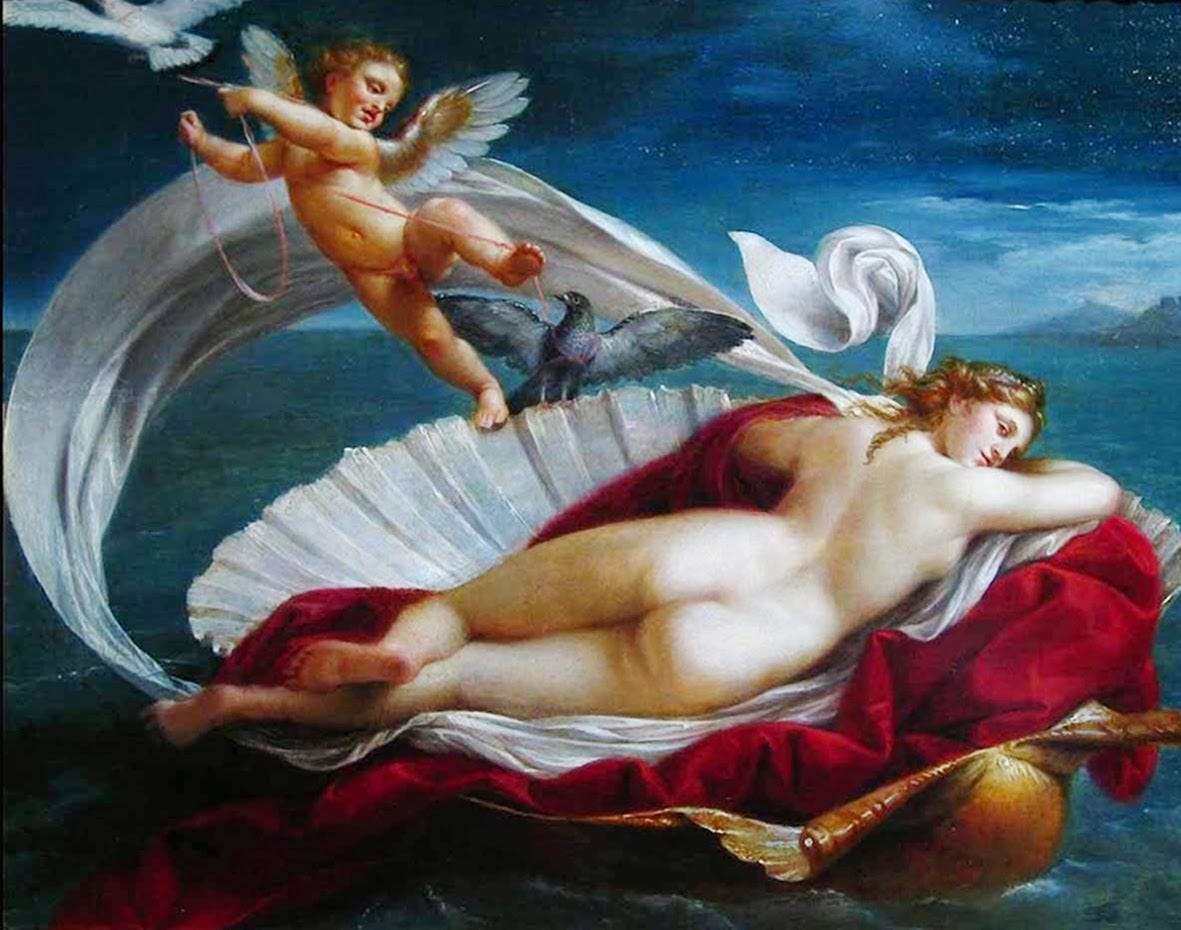
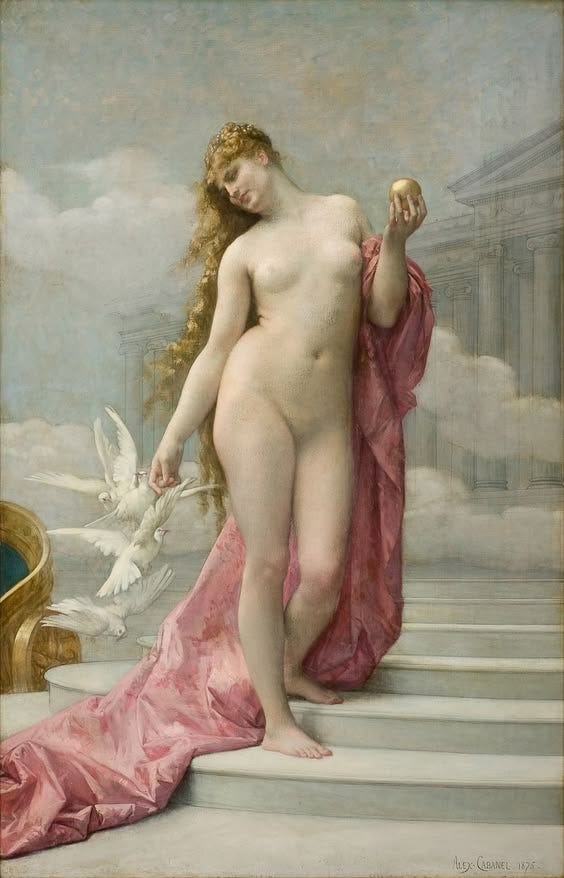
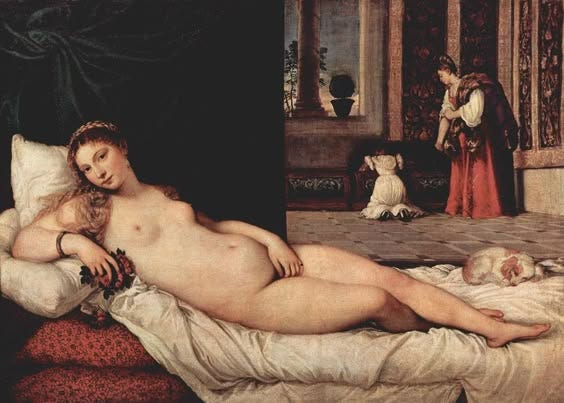
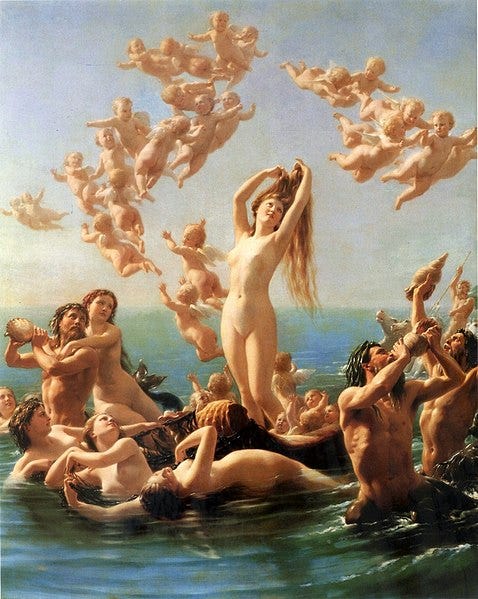

I am speechless dear Nadia, such a divine masterwork you did. Divine, as you are. This poem touches my heart so deeply. Thank you for your divine soul 🌸🌹
I am obsessed!! The poem, the visuals! This is a gorgeous piece and I love Aphrodite! 🥹